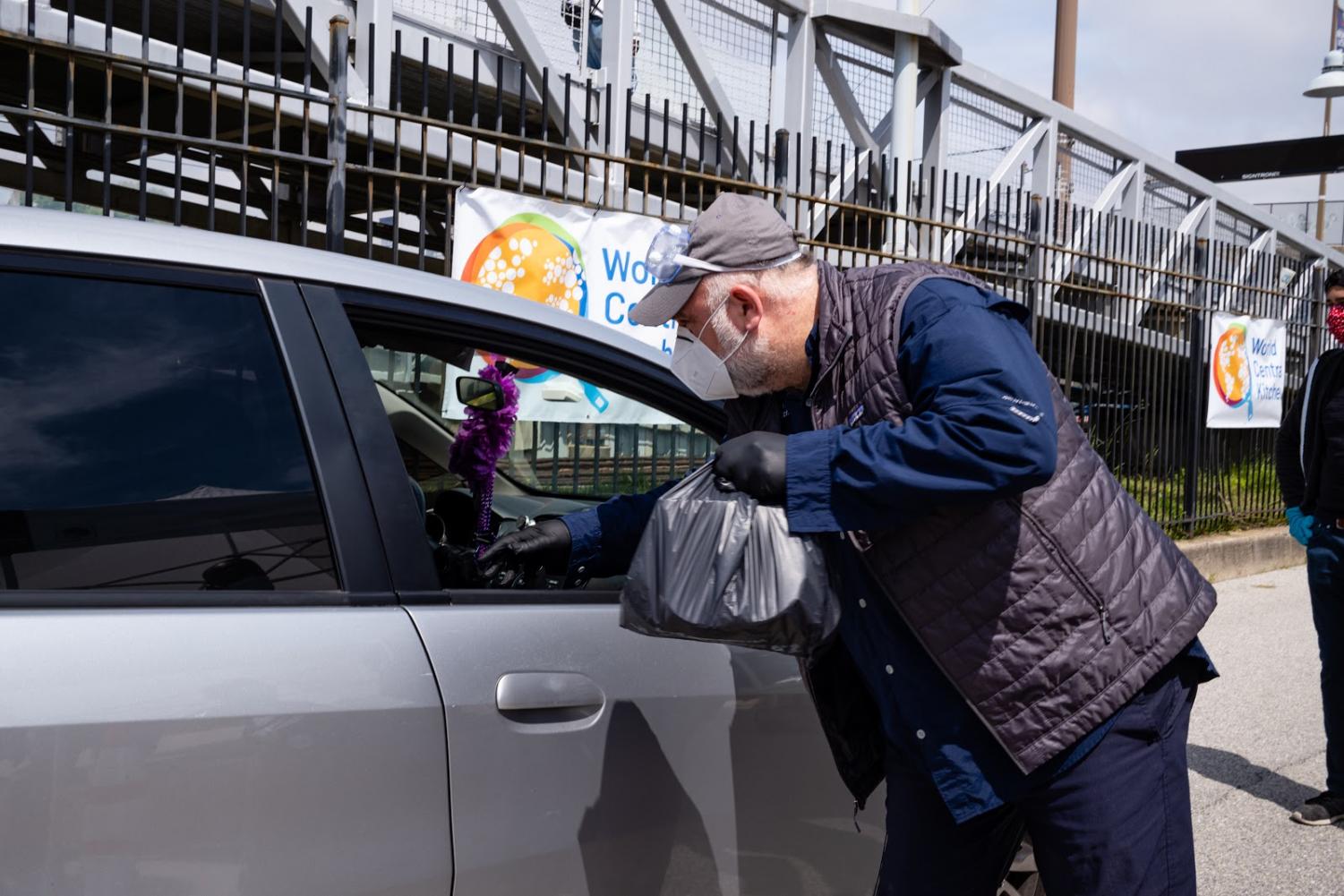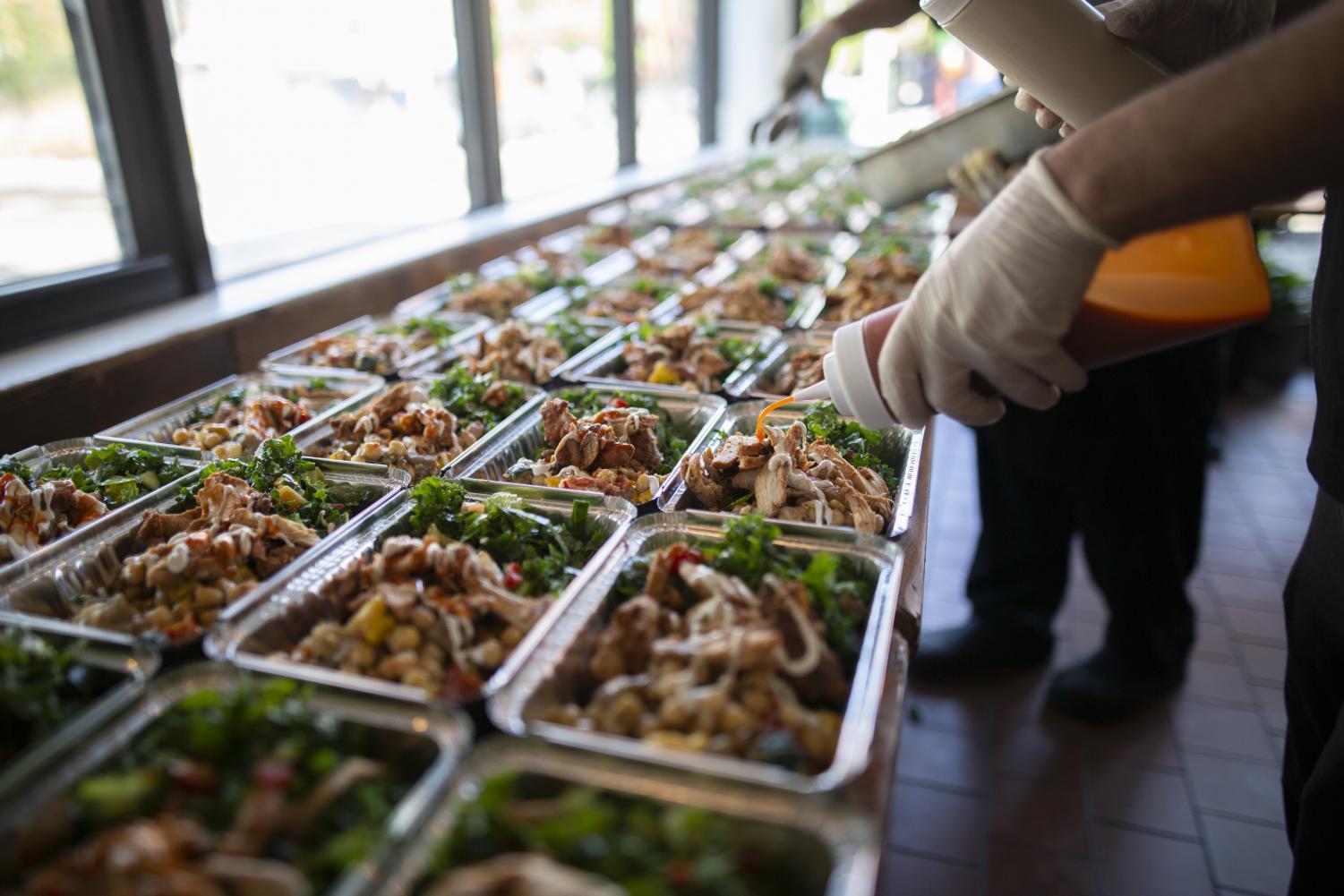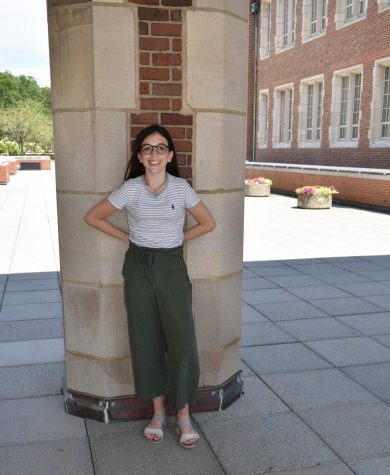What We Can Learn from World Central Kitchen
World Central Kitchen is a non-profit providing quality meals to people in need (World Central Kitchen/WCK.org)
Feb 5, 2021
World Central Kitchen (WCK) and Chef, José Andrés, have become famous across the world, as celebrities are joining the cause to support the non-profit, NGO organization. Andrés and his wife, Patricia, envisioned and developed the organization in 2010.
I spoke with Josh Phelps, the current Director of Relief Operations at WCK. Phelps’s story of making his passion for helping others his full-time job is not your average one.
Prior to joining WCK staff, Phelps worked in the research pharmaceutical industry for about 14 to 15 years, traveling to renowned hospitals including Cleveland Clinic, National Institute of Health and John Hopkins. His flexible work schedule allowed Phelps to make time for what he loves: volunteering. For example, for the past 10 years Phelps has been helping his friends’ non-profit, Hoops Sagrado, taking high-school kids from the streets of D.C. to Guatemalan indigenous villages where they teach basketball camps.
In September 2017, Hurricane Maria struck the island of Puerto Rico. Living in D.C., Phelps was familiar with Andrés’ philanthropic work and decided to join it, upon hearing that WCK was in Puerto Rico. One year later, in 2018, Phelps went to Guatemala to volunteer for Hoops Sagrado when Vúlcan de Fuego, outside of Antigua, erupted. When the average person hears the words ‘volcanic eruption,’ their first thought might be about getting home safely. Not Phelps. He remained there with WCK to volunteer while finishing pharmaceutical projects remotely.
Before meeting Andrés, Phelps worked on several other WCK relief initiatives, from Hurricane Florence in North Carolina to Hurricane Michael in Florida, to the fire in Paradise, California. When tragedy strikes, Josh underscored, “WCK´s food gives people hope and dignity.”
When speaking of his experience with the 2018 fire in Paradise, he struck a somber tone recalling that no one thought the fire could move so fast, let alone burn the whole town. Phelps humbly expressed that this time was about the work, learning how WCK operated. No matter the circumstances, he said, WCK always shows up. After California Phelps and a few others set up a kitchen in Tijuana, Mexico (that is still going today). Around this time WCK provided this dedicated WCK crew full-time positions.
With a global pandemic looming over his first year as Director of Relief Operations, Phelps had no idea what was to come. Eventually, the pandemic led WCK to develop its COVID-19 Food Relief initiative – an ongoing response to the health, humanitarian and economic crisis from COVID-19. It includes Chefs for America, providing fresh meals to communities in immediate need and Restaurant for the People, aiming to keep small restaurants and food businesses open.
WCK first faced the pandemic in Jan., 2020 when a cruise ship was quarantined off the coast of Yokohama, Japan. At the time, Phelps pointed out, “No one really knew what was going to happen with the pandemic at the beginning of 2020.” In Japan, the crew learned about proper COVID-19 safety protocols and later used this training to help another quarantined cruise ship off in Oakland, California upon returning to the States.

Experienced with emergency response operations, WCK treated this pandemic no differently. WCK set forth a plan in which they pay a restaurant to feed people in need, establishing a fair price point of $10 meals. By utilizing restaurants outside of WCK’s inner circle, they keep people employed, including undocumented workers who have no social safety net.
WCK’s template reaches out to the grassroots, matching recipients with local restaurants. According to Phelps, in the past year, the WCK COVID-19 Relief initiative has put about $140,000,000 back into the restaurant economy.
By using a simple template that is “software, not hardware” Phelps explained that WCK can walk into a scene with their software, their expertise, and just a backpack to figure out the logistics in distributing food to thousands, sometimes tens of thousands, of people a day. Phelps revealed that WCK educates policy makers about WCK’s simple yet effective template. WCK hopes legislators will pass the FEED Act to unlock federal dollars from FEMA and launch more relief initiatives.
When asked what is one of his favorite things about working with WCK, Phelps replied, “What we do happens to be giving people a chance to help the communities they love, I wasn’t a resident of Puerto Rico, I wasn’t a resident of Guatemala but those two places hold a special place in my heart.”
WCK goes down and offers an opportunity for people to give back to the communities they love even after losing a house or loved one. From chopping up veggies, making a sandwich, or delivering the meals, Phelps said, “It is just a special thing. It is a very cathartic experience for everybody, and for us being able to offer that, is also just one of the benefits of World Central Kitchen.
When asked one word to describe Andrés, Phelps paused to think, and replied with the word “relentless.” In the midst of popping up on TV, for example on CNN’s Inauguration Celebration, Phelps explained that Andrés stays true to who he is, adding, “He doesn’t ask of us any more than he asks himself. He is not a mouthpiece for the organization, he is actually on the ground.”

“Andrés, our founder, likes to say ‘shorter walls, longer tables,'” meaning WCK aims to bring different people together at the proverbial table. Phelps said he knows Andrés will always be there to lead in more ways than one. The FEED Act is just the beginning of what is to come.
When asked what Gen Z should take away from WCK, Phelps replied, “I would say there is so much that every generation can learn from another…. We [WCK] have an open mind, we have a director of information and relief systems, and as we grow, as we expand, we can’t always rely on human capital, such as labor force. We have to keep up with the times. We are a very tech-oriented company now.”
In a time when it seems we can’t control much, we still can control how we respond. Phelps left his normal job for an unpredictable one, teaching us that you can turn passion into a job and we can choose to adapt and react. And while to us, this seems far out of reach or nearly impossible, Phelps shares, “I think you will find that people will be receptive and you know if you end up with an organization that does something that is near and dear to your heart, (maybe it is feeding or clothing people, housing people) you will find that it can be very rewarding.”













